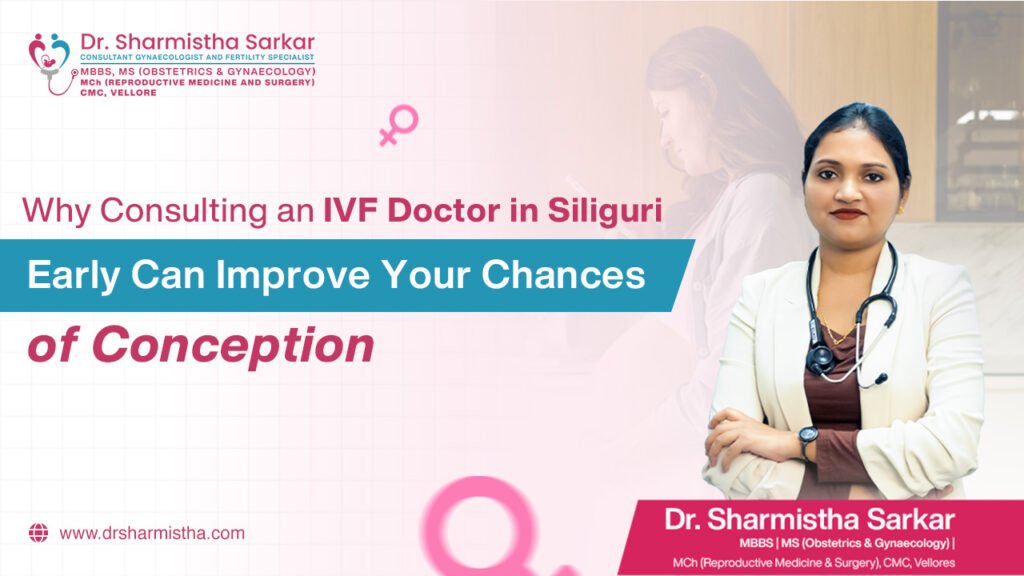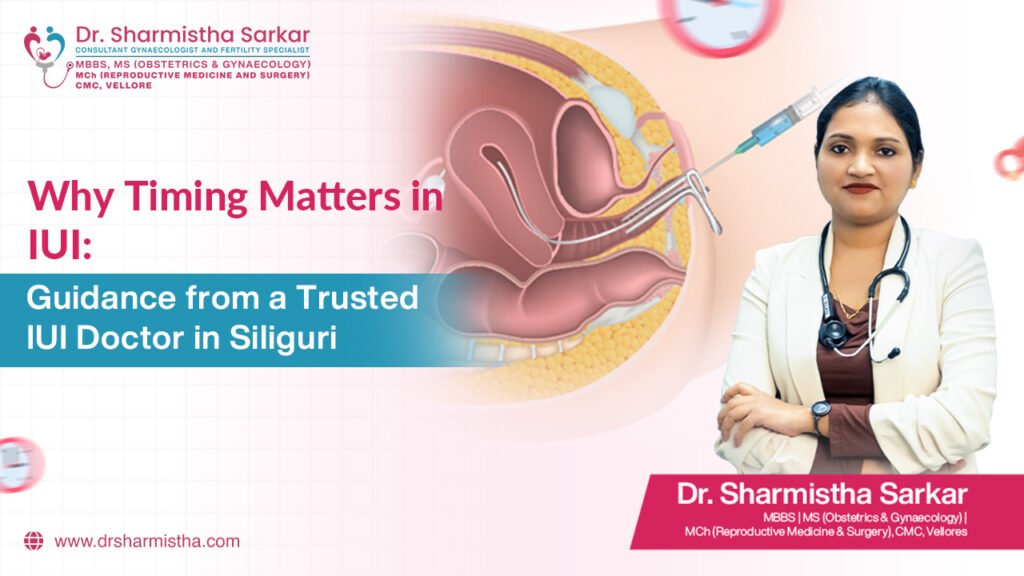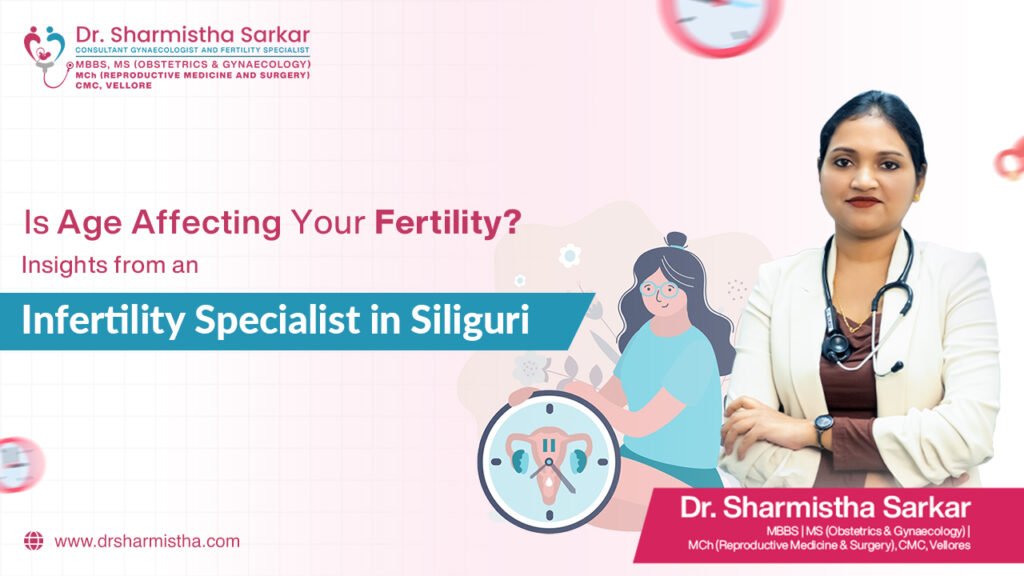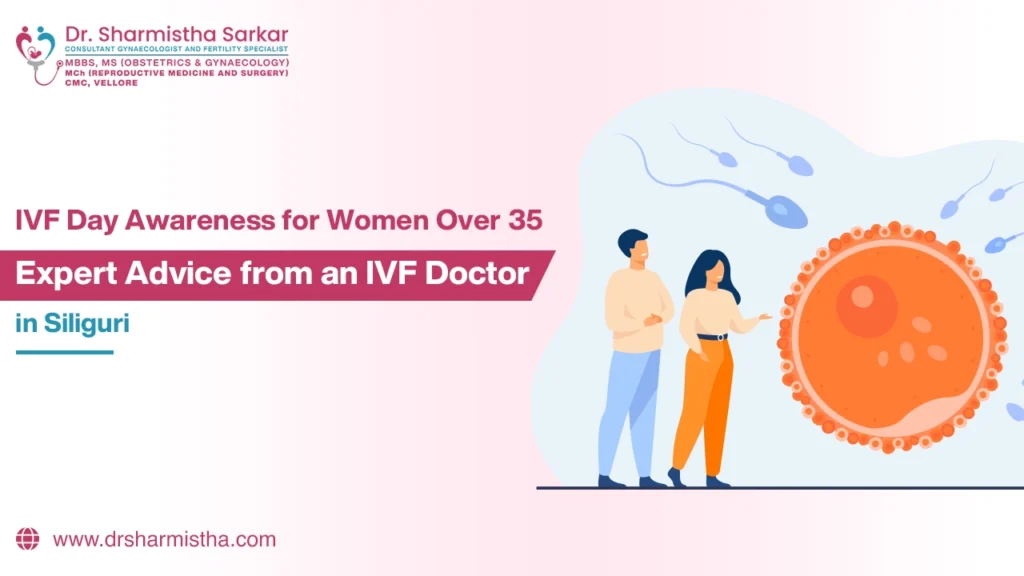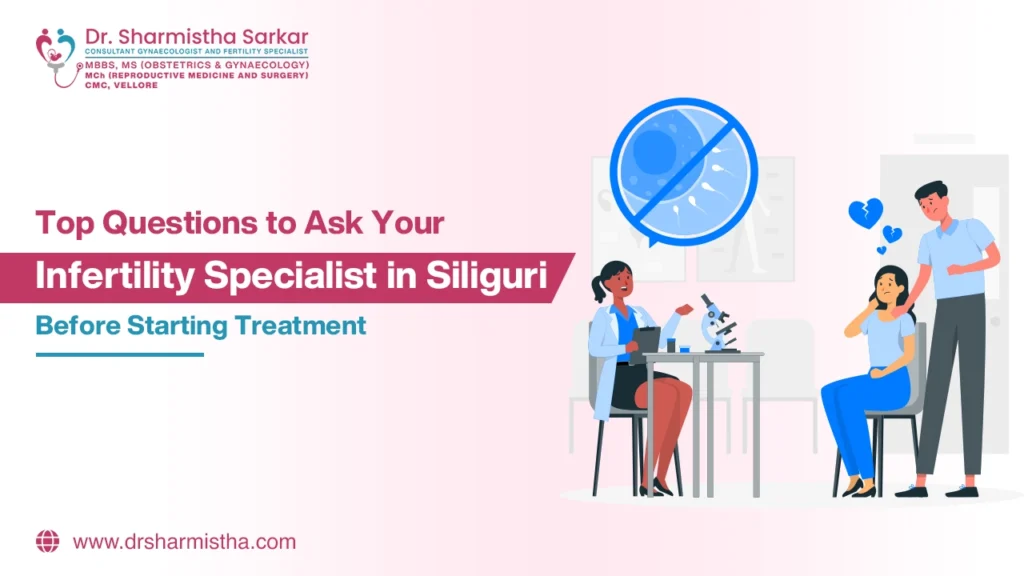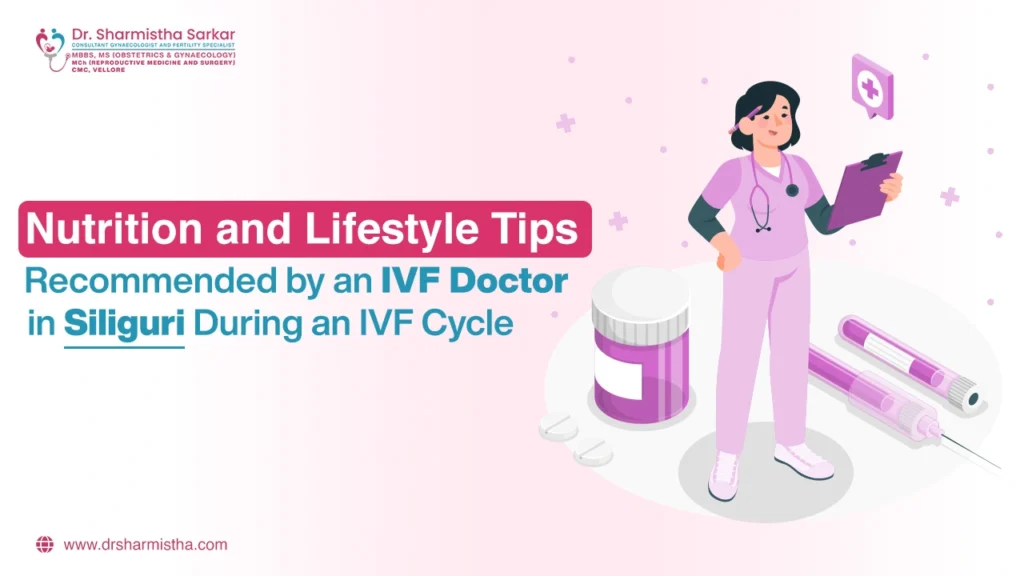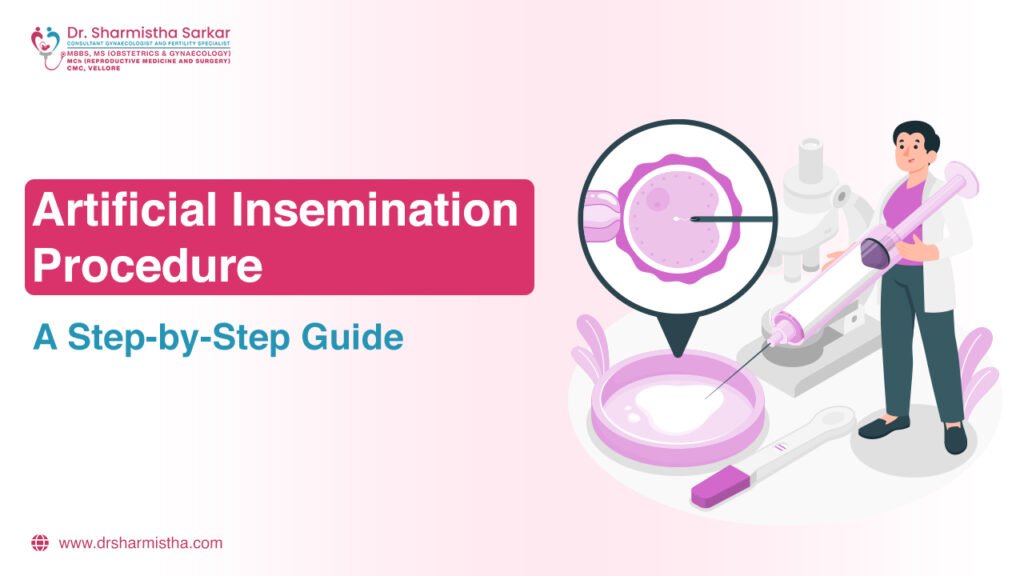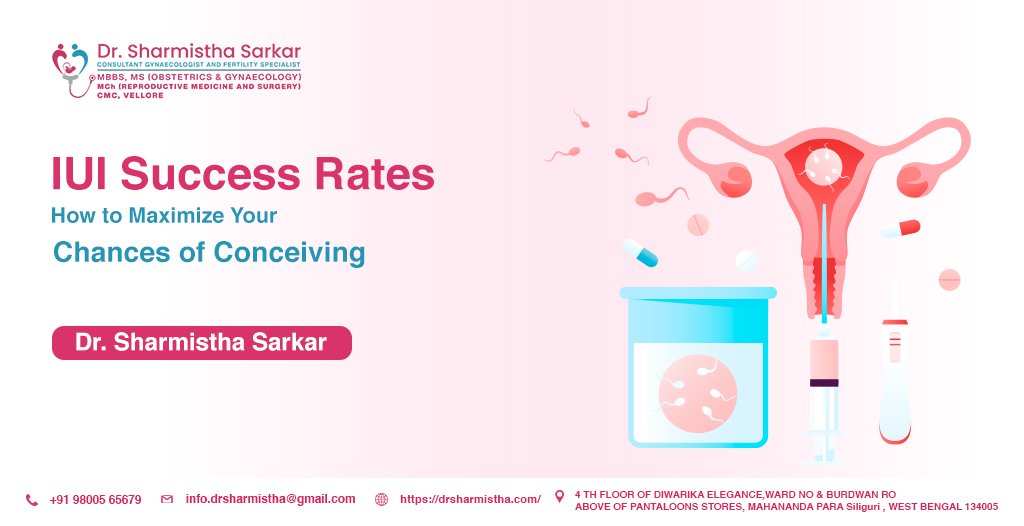Why Consulting an IVF Doctor in Siliguri Early Can Improve Your Chances of Conception
When it comes to starting a family, every moment counts. Consulting an IVF doctor in Siliguri at the right time can make a major difference between delayed conception and early success. Many couples wait years hoping things will happen naturally, unaware that fertility can decline with age and lifestyle factors. Taking that first step early gives you a clear understanding of your reproductive health and helps prevent avoidable delays. This blog explains why consulting an IVF doctor in Siliguri early can maximize your chances of conception and help you begin your parenthood journey confidently. Why Early Consultation Matters Infertility is more common than ever but the good news is that it’s also more treatable than ever. The earlier you consult a specialist like Dr. Sharmistha Sarkar, the better your chances of getting timely, effective treatment. Early consultation allows your IVF doctor in Siliguri to: Identify potential fertility issues in both partners Recommend suitable tests and lifestyle modifications Provide treatment before conditions worsen Guide you toward the right reproductive technique — IVF, IUI, ICSI, or fertility medication Waiting too long can lead to a decline in egg or sperm quality, which often reduces the success rate of treatments. Acting early helps your doctor design a personalized plan while your fertility potential is still strong. The Role of Age in Fertility Fertility and time are closely connected. Both men and women experience gradual reproductive decline as they age. Understanding this biological reality is crucial. In women: Egg count and quality begin to drop after age 30 The chances of miscarriage and genetic abnormalities increase Hormonal imbalances and irregular ovulation become more common In men: Sperm motility and count reduce with age There’s an increased risk of DNA fragmentation Lower testosterone levels can affect fertility By consulting an IVF doctor in Siliguri early, couples can evaluate their fertility potential and take preventive measures including egg or sperm freezing to preserve their reproductive health. How Early Diagnosis Enhances Treatment Infertility can stem from multiple causes, many of which are treatable when detected early. Unfortunately, symptoms aren’t always obvious. Your IVF doctor in Siliguri can help diagnose conditions like: Polycystic Ovary Syndrome (PCOS) – causing irregular periods and hormonal imbalance Endometriosis – when tissue grows outside the uterus, affecting implantation Blocked Fallopian Tubes – preventing eggs from meeting sperm Low Sperm Count or Motility – reducing chances of fertilization Thyroid or Prolactin Imbalance – disrupting ovulation cycles The earlier these issues are identified, the more responsive your body is to treatment. Timely diagnosis ensures that mild problems don’t progress into more serious infertility complications. Here’s Some of the Benefits of Early Consultation With An IVF Doctor 1. Better IVF Success Rates The success of IVF is influenced by multiple factors, including egg quality, sperm health, and uterine condition. Couples who approach an IVF doctor in Siliguri early often experience better results because: The ovaries respond more efficiently to stimulation Eggs retrieved are of higher quality Sperm health and count are better The body is generally more receptive to implantation Starting early means your fertility specialist can explore simpler, less invasive treatments first such as timed intercourse or IUI before proceeding to IVF if necessary. 2. Lower Stress and Emotional Stability Fertility struggles can be emotionally exhausting. The constant cycle of hope and disappointment can take a toll on mental health and relationships. Consulting an IVF doctor in Siliguri early can ease that emotional burden by providing: A clear understanding of your condition Professional reassurance and emotional support A structured plan with achievable goals Reducing uncertainty helps couples manage stress better, which in turn supports hormonal balance and improves fertility outcomes. 3. Prevention of Egg and Sperm Deterioration Egg and sperm quality play a vital role in conception. With aging, environmental toxins, and poor lifestyle habits, their quality tends to decline. An experienced IVF doctor in Siliguri will guide you to: Improve your diet with fertility-boosting nutrients Avoid harmful substances like tobacco and alcohol Maintain a healthy weight and sleep routine Take prescribed supplements that support reproductive health These small yet powerful lifestyle changes can improve egg and sperm quality over time and boost the chances of conception, whether naturally or through IVF. 4. Time-Efficient Treatment Planning Infertility treatments require careful timing, from ovulation tracking to embryo transfer. An early consultation allows proper planning without rushing or missing critical fertility windows. With early medical advice, couples can: Schedule tests and treatments efficiently Receive medications at the right time Move progressively from mild to advanced procedures Save both time and emotional effort Delaying consultation may result in limited options later. An early start gives your IVF doctor in Siliguri the flexibility to plan the most effective treatment timeline for you. 5. Access to Modern Assisted Reproductive Technology (ART) Today, assisted reproductive technologies are more advanced and accessible than ever before. By consulting an IVF doctor in Siliguri early, you gain access to cutting-edge solutions such as: ICSI (Intracytoplasmic Sperm Injection) for male infertility Blastocyst transfer for higher implantation success Preimplantation Genetic Testing (PGT) to ensure healthy embryos Egg or embryo freezing for fertility preservation Laser-assisted hatching for improved embryo implantation Starting early gives your doctor time to evaluate which procedure suits your case best, increasing your chances of a successful pregnancy. 6. Improved Long-Term Reproductive Health Infertility is often linked to underlying health issues such as diabetes, thyroid disorders, or hormonal imbalances. Regular consultations with an IVF doctor in Siliguri help in early detection and management of these conditions. Ongoing monitoring helps you: Maintain balanced hormone levels Prevent the worsening of reproductive disorders Manage overall wellness before and during pregnancy By addressing these conditions early, you ensure better outcomes for both conception and pregnancy. When Should You Consult an IVF Doctor? It’s time to consult an IVF doctor in Siliguri if: You’ve been trying to conceive for more than 12 months (or 6 months if over 35) Your menstrual cycles are irregular or absent You have a known reproductive condition such as PCOS or endometriosis You
Why Consulting an IVF Doctor in Siliguri Early Can Improve Your Chances of Conception Read More »

